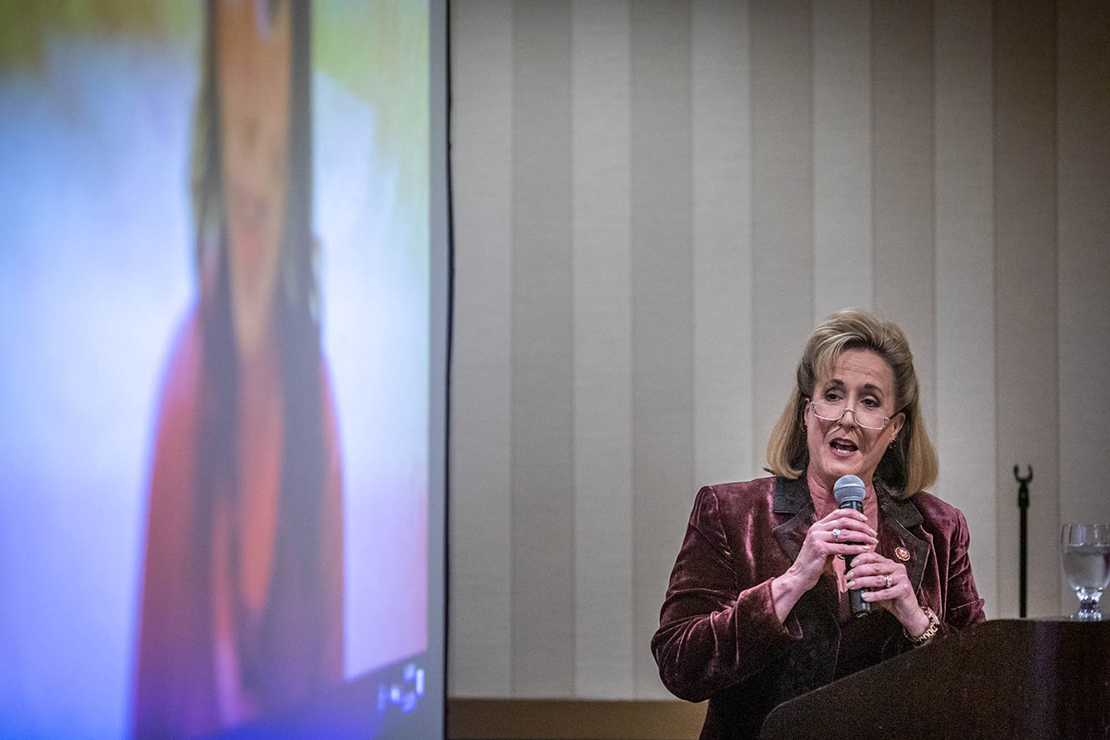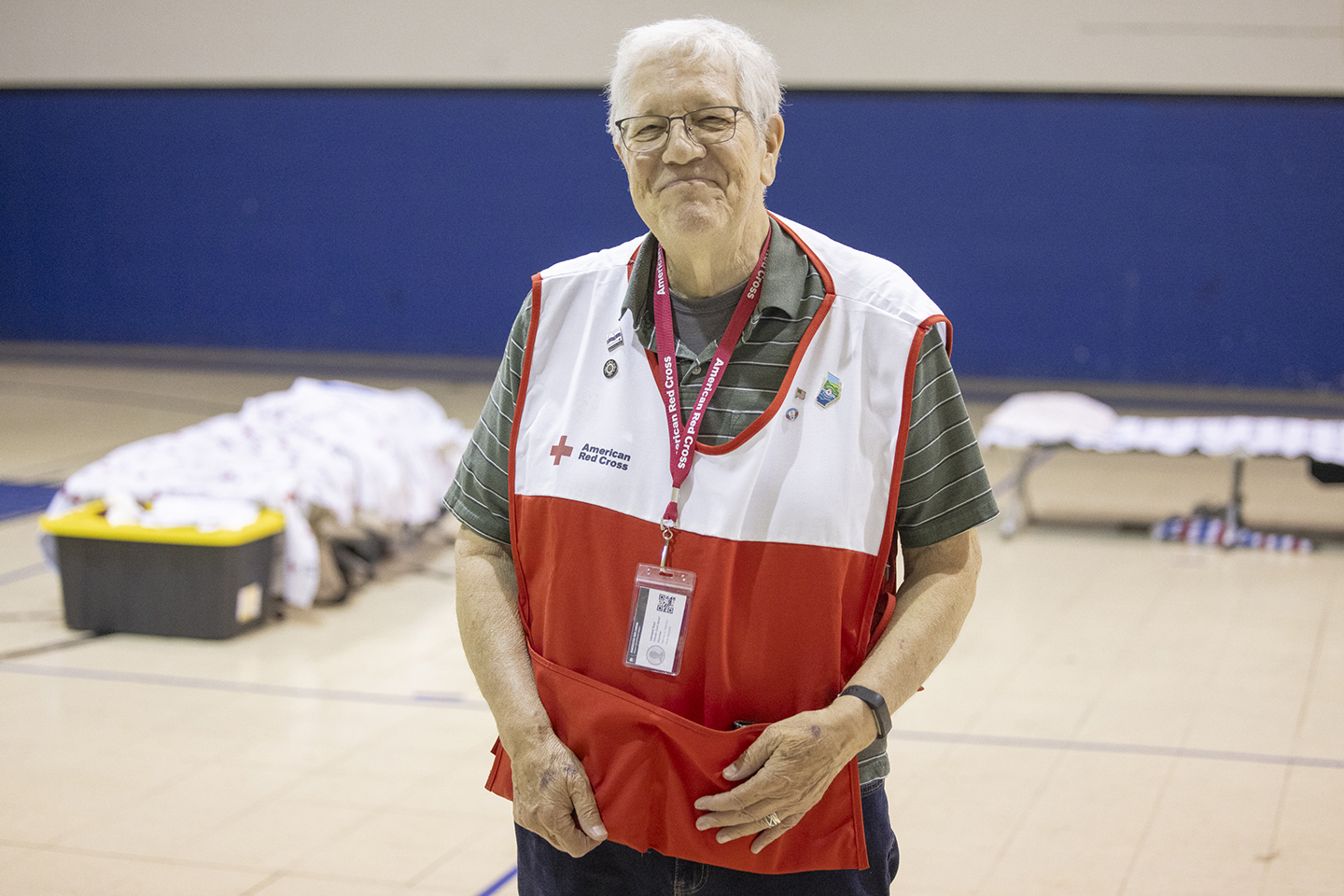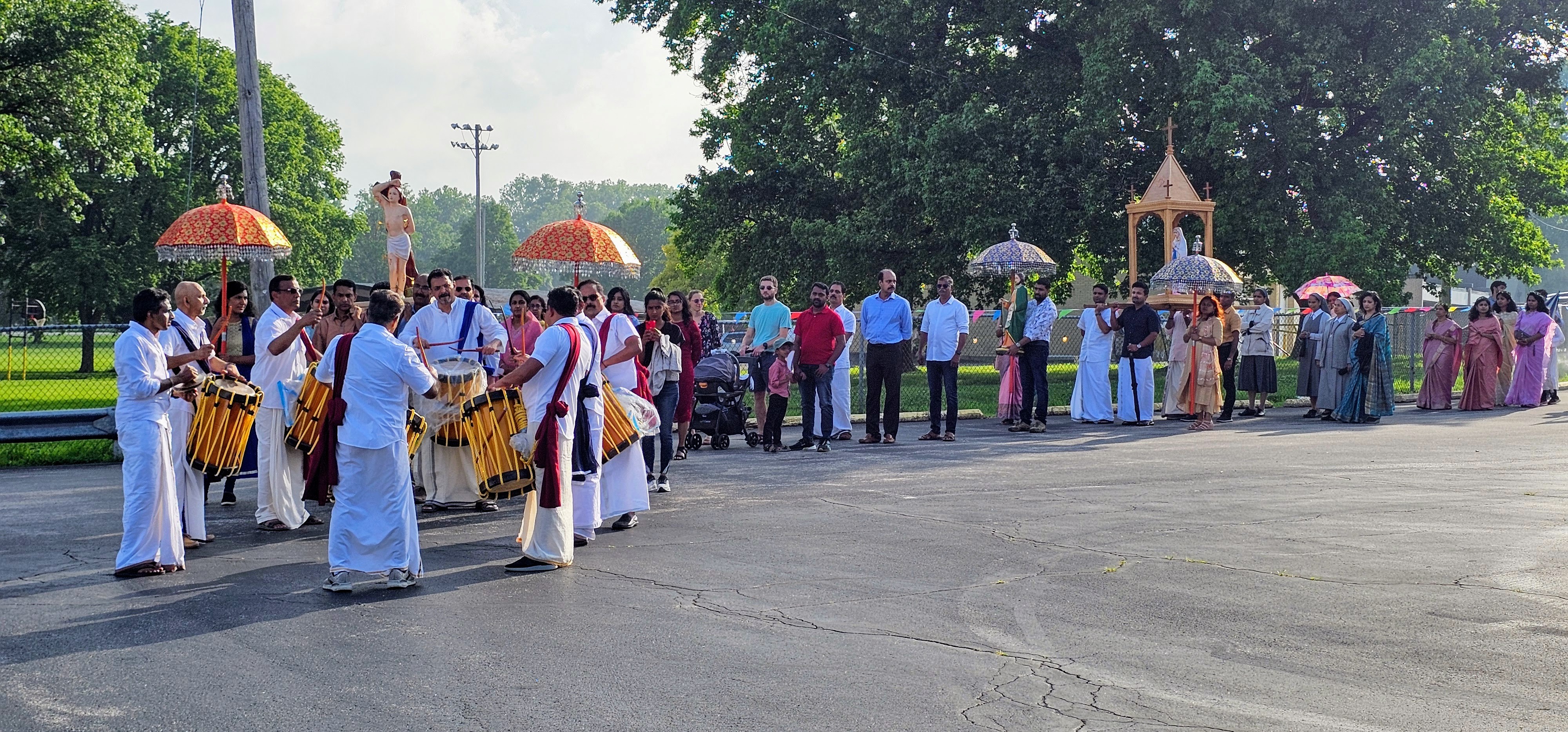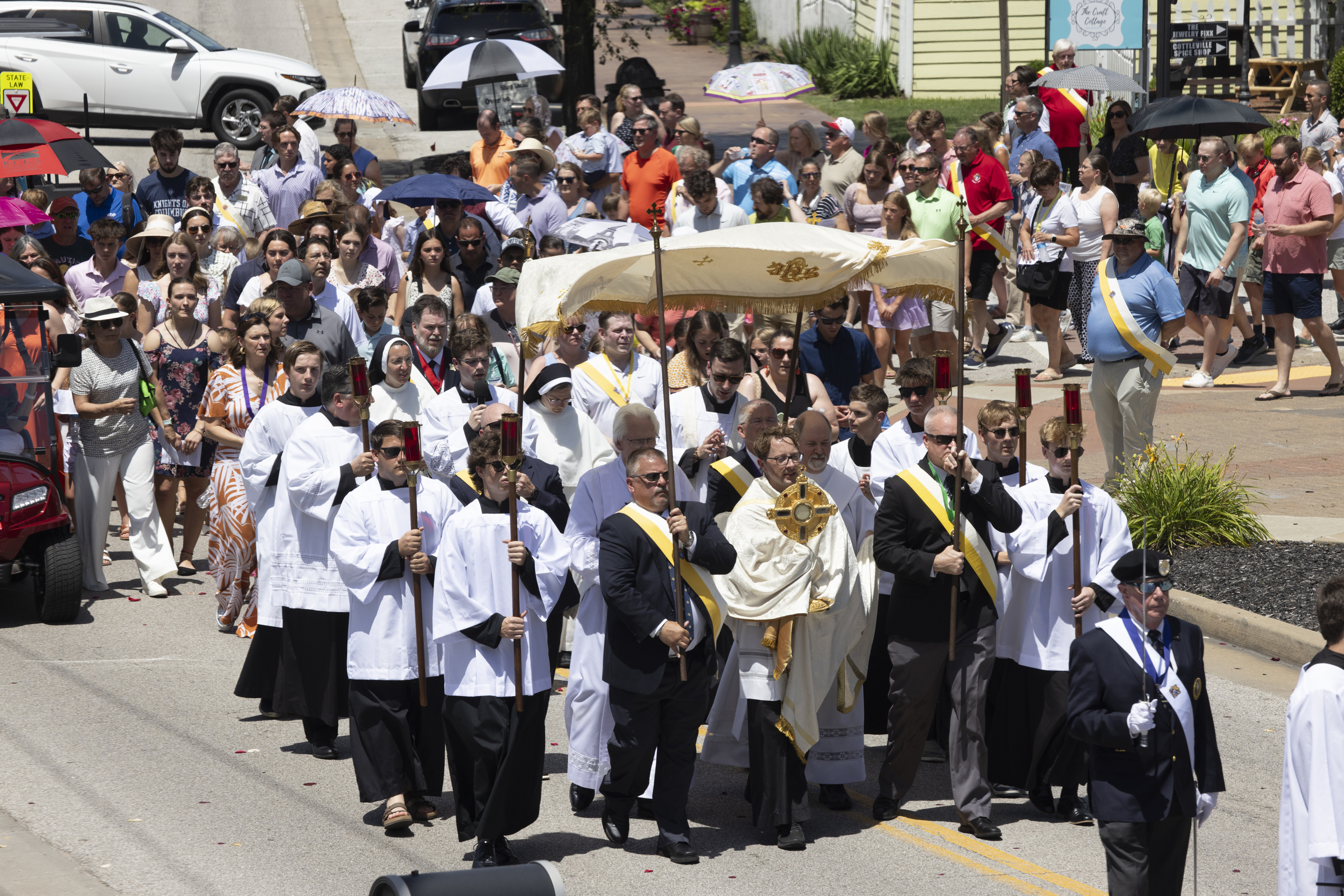Sweeping measure in Missouri House would place further limits on abortions in the state

Rep. Nick Schroer’s bill includes several other pro-life amendments
The Missouri House of Representatives has passed a sweeping measure that would place new limits on abortions in Missouri.
The House passed the bill Feb. 27 with a bipartisan vote of 117-39. It now heads to the Senate for consideration. Gov. Mike Parson has said he supports the measure.
Sponsored by Rep. Nick Schroer, R-O’Fallon, HB 126 initially started as a bill to ban abortions after the detection of a fetal heartbeat. It was amended to include other pro-life provisions in what is now being called the Missouri Stands for the Unborn Act. The provisions include:
• A ban on abortions at 20 weeks gestation, when an unborn child can begin to feel pain;
• Enacts the “Right to Life of the Unborn Child Act,” which would ban all abortions in Missouri if Roe vs. Wade is overturned, or the adoption of a federal Human Life Amendment or enactment of a federal Human Life bill;
• Bans abortions for reasons including Down syndrome, race or gender;
• Requires a second custodial parent to be notified when a minor is seeking an abortion, with certain exceptions;
• Increases medical malpractice insurance requirements for those who perform or induce abortions and adds additional insurance requirements for doctors who induce abortions using chemicals or drugs.
• Recognizes that “God is the author of life” and states that Missouri is a “sanctuary of life” that protects pregnant women and unborn children.
• An exception is given in cases where the mother is at risk of death or serious physical harm. But there is no exception for cases of rape or incest.
“As other states in our nation, like New York and Virginia, venture further and further away from the American ideal to uphold the right to life, I’m honored to lead a state with so many people committed to standing up for those without a voice,” Parson wrote in a statement. “I applaud the bipartisan efforts of the Missouri House of Representatives for choosing to take a bold stand to protect women’s health and the right to life.”
Schroer, a member of Assumption Parish in O’Fallon, has cited his Catholic upbringing in his desire to protect unborn human life through this legislation.
Recent legislative efforts in New York and Virginia to ease restrictions on abortion “added fuel to the fire,” Schroer said. “Our party is a lot younger now and more diverse but we’re putting our priorities for life first. (The bill) is unlike any other, and we believe this will be litigated and will withstand judicial scrutiny. our first mission is to protect life at all levels.”
The number of abortions performed in Missouri and among Missouri residents continues to decline, according to 2017 statistics from the Missouri Department of Health and Senior Services (DHSS). Abortions in Missouri have decreased from 4,562 in 2016 to 3,903 in 2017, a 14.4 percent decline. The number of resident abortions — defined as abortions performed on Missouri residents regardless of where the abortion occurred — also decreased from 7,275 in 2016 to 6,790 in 2017, a 6.6 percent decline.
Pro-life leaders over the years have credited extensive pro-life laws in Missouri, a consistent presence in front of abortion clinics, as well as state-supported efforts to provide alternatives to abortions, including pregnancy resource centers and maternity homes, and wrap-around services that address both the needs of the mother and child.
>> Federal court upholds Missouri abortion regulation
A federal court has rejected another request by Planned Parenthood to halt a Missouri law requiring abortion doctors to have local hospital privileges. As a result, the Planned Parenthood in Columbia, Mo., remains unable to perform abortions.
This is the third attempt by Planned Parenthood Great Plains in seeking a preliminary injunction against the law, which requires doctors to have hospital privileges within 30 miles of where the abortions are performed. Pro-life advocates said the provision offers women undergoing an abortion quick admittance to a hospital in the event that emergency medical attention is needed.
“This is a huge victory for protecting women’s health and the right to life,” Gov. Mike Parson said in a statement. “It’s sad that Planned Parenthood continues to fight against ensuring that a woman’s abortion provider has privileges to a nearby hospital when complications arise. As a former member of the Missouri General Assembly, I was proud to cast votes in support of protecting life and women’s health that have now been upheld in the court of law.”
Planned Parenthood in Columbia is without a doctor with hospital privileges to perform abortions. At this point, Planned Parenthood in St. Louis is the only remaining abortion provider in Missouri. The Columbia facility currently provides non-abortion-related services.
In October, a federal court declined to issue an injunction against state law requiring physicians performing abortions at the Columbia Planned Parenthood facility to have hospital privileges. The court noted that the abortion facility was not compliant with state sanitation regulations. Equipment covered in black mold and bodily fluid had previously been discovered during a routine safety inspection.
“We appreciate the district court’s ruling that permits the same standards of care for women that is associated with other invasive surgical procedures,” said Dr. Randall Williams, director of the Missouri Department of Health and Senior Services. He attested to the court that “this is not a burden but a responsibility that physicians dedicated to caring for their patients exercise daily to ensure their patients’ safety by timely providing care at a time patients need it the most, during complications.”>>
>> Federal efforts to protect infants born alive after abortion
Recent federal legislation that would require medical attention for babies born alive after an abortion recently failed in the U.S. Senate. But it has prompted a wider discussion about medical care for the most vulnerable of human beings.
Melissa Ohden survived a failed saline infusion abortion in her mother’s womb at a Sioux City, Iowa, hospital in 1977. She was born at about seven months gestation, and the nurses at the hospital took care of her before she was adopted. Her biological mother, who was 19 at the time, was coerced into the abortion, she said, by Ohden’s maternal grandmother, a nurse.
Ohden spoke via Skype last week to a group of pro-life advocates in St. Louis hosted by U.S. Rep. Ann Wagner of Missouri. Wagner is sponsoring a version of the Born Alive Act in the House (HR 962). She said what happened to her is a prime example of why there should be a law in place requiring medical care for babies who have survived an abortion.
“I am just one of a small group of people who have this kind of story,” she said. “But together we make this community of pro-life individuals and organizations who are really standing at the forefront right now trying to make a difference in a world that seems to be slipping day by day. Were in this defining moment of our culture right now where life is either going to be greater respected and protected or more aggressively rejected.”
It’s taken Ohden, now an international speaker on pro-life issues, most of her adult life to piece together what happened to her. The 41-year-old left her career as a social worker to become a speaker. In 2012, she founded the Abortion Survivors Network to raise awareness of those who have survived an abortion attempt, as well as provide support to survivors and collect statistics on the number of abortion survivors.
Ohden was outside the Senate chambers during their Feb. 25 vote. She said the outcome was disappointing, but not surprising.
“My purpose for being there was to not only thank those Senators who voted in support of the bill, but to also put a face and a name for all the Senators to see — survivors exist and deserve to be ensured of timely medical care,” she said via email. “This is a common-sense bill that there should be no debate about, however. This is a bill about treating the most vulnerable among us.”
— Jennifer Brinker
The Missouri House of Representatives has passed a sweeping measure that would place new limits on abortions in Missouri. The House passed the bill Feb. 27 with a bipartisan vote … Sweeping measure in Missouri House would place further limits on abortions in the state
Subscribe to Read All St. Louis Review Stories
All readers receive 5 stories to read free per month. After that, readers will need to be logged in.
If you are currently receive the St. Louis Review at your home or office, please send your name and address (and subscriber id if you know it) to subscriptions@stlouisreview.com to get your login information.
If you are not currently a subscriber to the St. Louis Review, please contact subscriptions@stlouisreview.com for information on how to subscribe.







